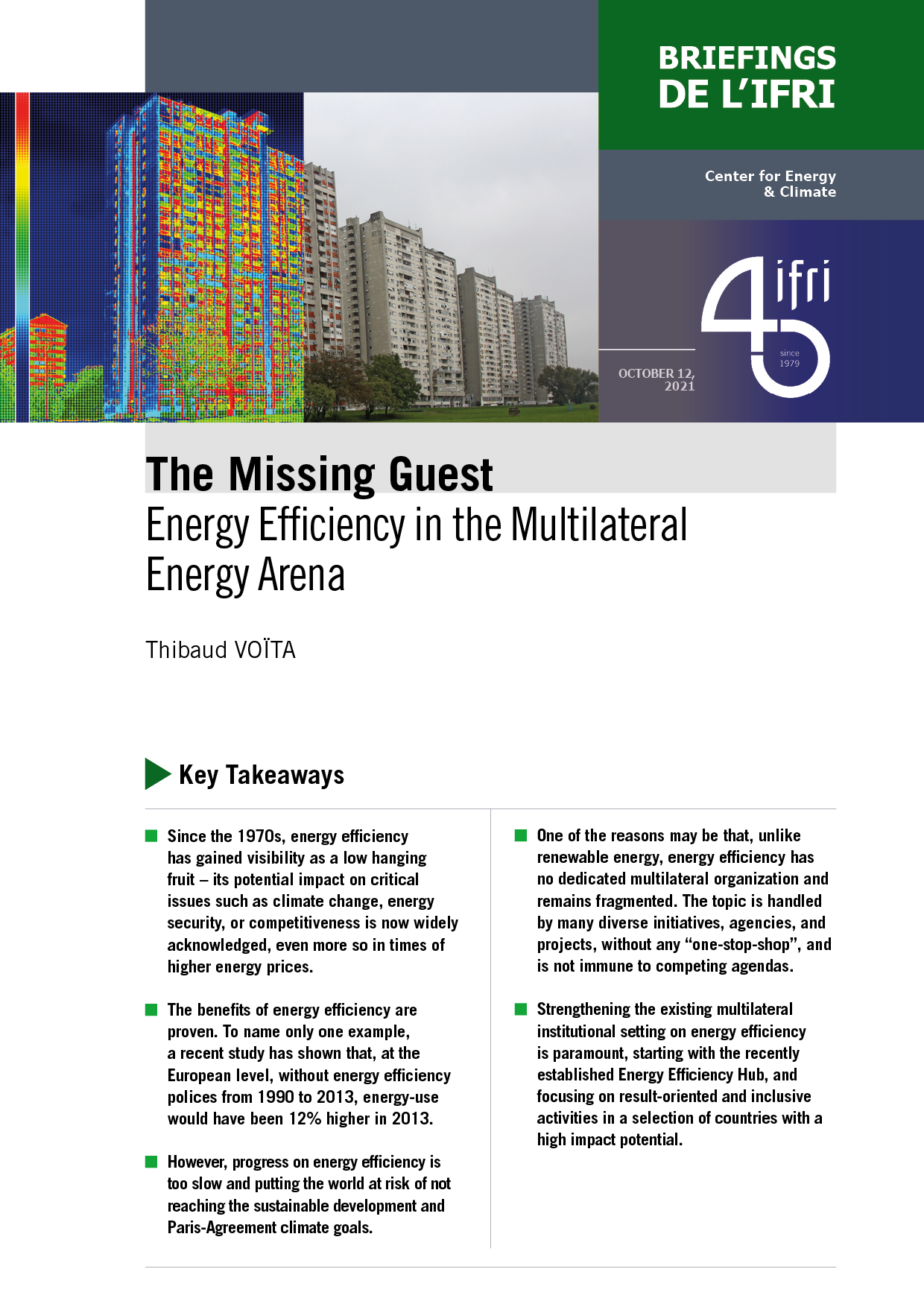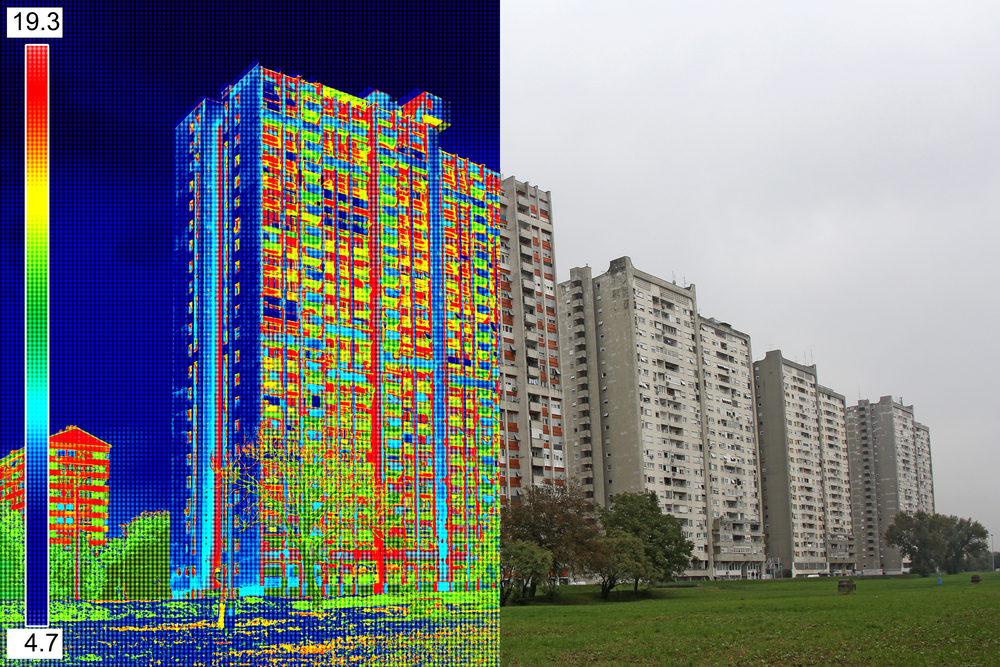The Missing Guest: Energy Efficiency in the Multilateral Energy Arena

Since the 1970s, energy efficiency has gained visibility as a low hanging fruit – its potential impact on critical issues such as climate change, energy security, or competitiveness is now widely acknowledged, even more so in times of higher energy prices.

• The benefits of energy efficiency are proven. To name only one example, a recent study has shown that, at the European level, without energy efficiency polices from 1990 to 2013, energy-use would have been 12% higher in 2013.
• However, progress on energy efficiency is too slow and putting the world at risk of not reaching the sustainable development and Paris-Agreement climate goals.
• One of the reasons may be that, unlike renewable energy, energy efficiency has no dedicated multilateral organization and remains fragmented. The topic is handled by many diverse initiatives, agencies, and projects, without any “one-stop-shop”, and is not immune to competing agendas.
• Strengthening the existing multilateral institutional setting on energy efficiency is paramount, starting with the recently established Energy Efficiency Hub, and focusing on result-oriented and inclusive activities in a selection of countries with a high impact potential.

Available in:
Regions and themes
ISBN / ISSN
Share
Download the full analysis
This page contains only a summary of our work. If you would like to have access to all the information from our research on the subject, you can download the full version in PDF format.
The Missing Guest: Energy Efficiency in the Multilateral Energy Arena
Related centers and programs
Discover our other research centers and programsFind out more
Discover all our analysesAI, Data Centers and Energy Demand: Reassessing and Exploring the Trends
The information and communication technologies sector today accounts for 9% of global electricity consumption, data centers for 1-1.3%, and artificial intelligence (AI) for less than 0.2%. The growing energy demands of cloud services first, and now AI workloads (10% of today’s data centers electricity demand), have exacerbated this trend. In the future, hyperscale data centers will gain shares amongst all kinds of data centers and AI will probably account for around 20% of data centers electricity demand by 2030.
Unlocking India’s Energy Transition: Addressing Grid Flexibility Challenges and Solutions
India is rapidly scaling up its renewable energy (RE) capacity, adding 15–20 GW annually, but the ambitious goal of 500 GW of non-fossil capacity by 2030 is at risk unless the pace accelerates.
Europe’s Black Mass Evasion: From Black Box to Strategic Recycling
EV batteries recycling is a building block for boosting the European Union (EU)’s strategic autonomy in the field of critical raw minerals (CRM) value chains. Yet, recent evolutions in the European EV value chain, marked by cancellations or postponements of projects, are raising the alarm on the prospects of the battery recycling industry in Europe.

The New Geopolitics of Energy
Following the dramatic floods in Valencia, and as COP29 opens in Baku, climate change is forcing us to closely reexamine the pace—and the stumbling blocks—of the energy transition.







